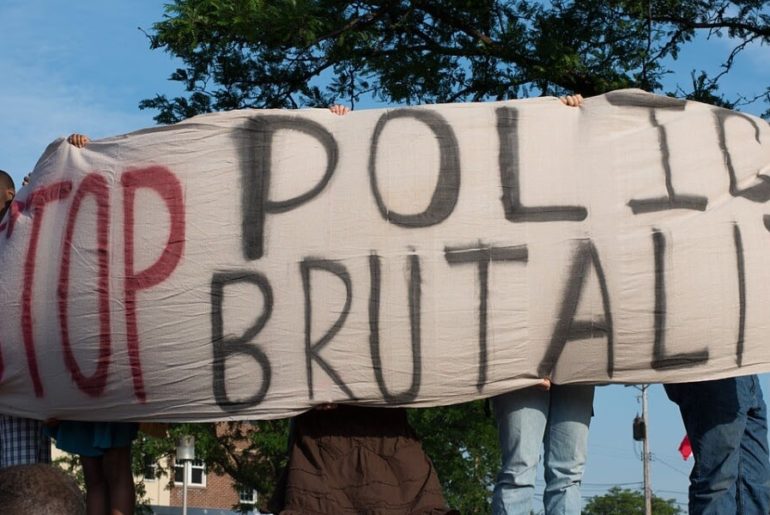Last week, hundreds of people took to the streets of Bogota, Colombia to protest police brutality and demand justice after the death of Javier Humberto Ordonez, who died at the hands of the police earlier this month. “We’re sick of them — we’re sick of them killing us with impunity, of demanding bribes when we walk down the street, of acting like they own us,” Laura, a government employee who did not give her full name, told The Guardian.
“Yesterday, Bogota woke up with reason, in pain, protesting the death of a citizen because of police abuse,” the distraught looking mayor said in a Twitter video last week. “But today we wake up with not only one, but three dead, killed in protests and extended violence … destroying Bogota is not going to fix the police.”
Ordonez, a 46-year-old law student and a father of two, was detained by the police for violating coronavirus social distancing restrictions. In a video posted by his friends, who were present at the time of the apprehension, the arresting officers can be seen with their knees on his back repeatedly tasering him before taking him into custody. Family members of Ordonez alleged that even after being arrested, he faced more police abuse, and soon after died in the hospital.
While he was being detained, Ordonez can be heard crying an all-too-familiar phrase: “please, no more, I’m suffocating.”
Back in the United States, where frequent cases of police brutality have made international headlines in the last couple of months, the phrase “I can’t breath”, uttered by various Black men before dying at the hands of police, has become a rallying cry of the Black Lives Matter movement and anti-police brutality campaigns.
Just earlier this month, civil unrest escalated in the country once more after Jacob Blake, a Black man, was shot on the back seven times by police officers in Kenosha, Wisconsin. Blake, who was trying to get in his car while he was being detained by the police, is now paralyzed from the waist down, his family said.
The event unraveled several protests in which so far, two people were fatally shot and another person was wounded.
“I broke down for a good while, but then I started thinking that, you know, I walked away with my life that night,” Gaige Grosskreutz, a Kenosha medic who was wounded in the protests, told USA Today. “There are two people who didn’t. You need to be very thankful (to be alive). And you need to be strong for them.”
“There’s a lot of work to be done in this country,” he said. “And I think at the forefront of that, it’s … equity and accountability and, you know, the way for humans to live their lives in peace.”
Although the circumstances in the cases of Ordonez and Blake were different, the source of the problem, some say, remain the same: civilian brutality at the hands of the police.
In a response to the police violence that ensued during the protests, Bogotá’s mayor, Claudia López, tweeted that police had not been authorized to fire on protesters, saying that officers had “disobeyed direct instructions”.
In Colombia, the coronavirus pandemic has aggravated the already deep distrust there is between the people and law enforcers. The country’s response to the health crisis, which included stern social distancing rules, gave law enforcers more power over civilians. That combined with the lack of hierarchical leadership, has led to a contentious situation in the Andean country.
“Evidently there is confusion over the role of the police and who is in charge of the police,” Sergio Guzmán, a Bogotá-based political risk analyst, told The Guardian. “And that doesn’t bode well for restoring public safety or trust in the police.”
Guzmán argued that the government’s efforts to quell last year’s labor-union protests, paired with the coronavirus harsh restrictions, “put a lid on a lot of social angst that was happening in Colombia.” He further explained that the government’s mismanagement of the coronavirus and the lack of communication and transparency was bound to blow up.
“I expect this is the start of a much bigger period of political unrest that will coincide with the governments plans to open the economy, so this is going to be a major set back in some of these plans,” Guzmán said.
President Ivan Duque said that the deaths in the protests are being investigated and that he won’t tolerate violence on the side of security enforcement. However, some argue that it is Duque’s leadership that has added flame to the fire.
“This is a consequence of systematic abuse of power, not only in the police but across the board,” Mafe Carrascal, an activist who has attended the protests, told The Guardian. “People are sick of the fact that if the Covid-19 doesn’t kill them, the government will.”

